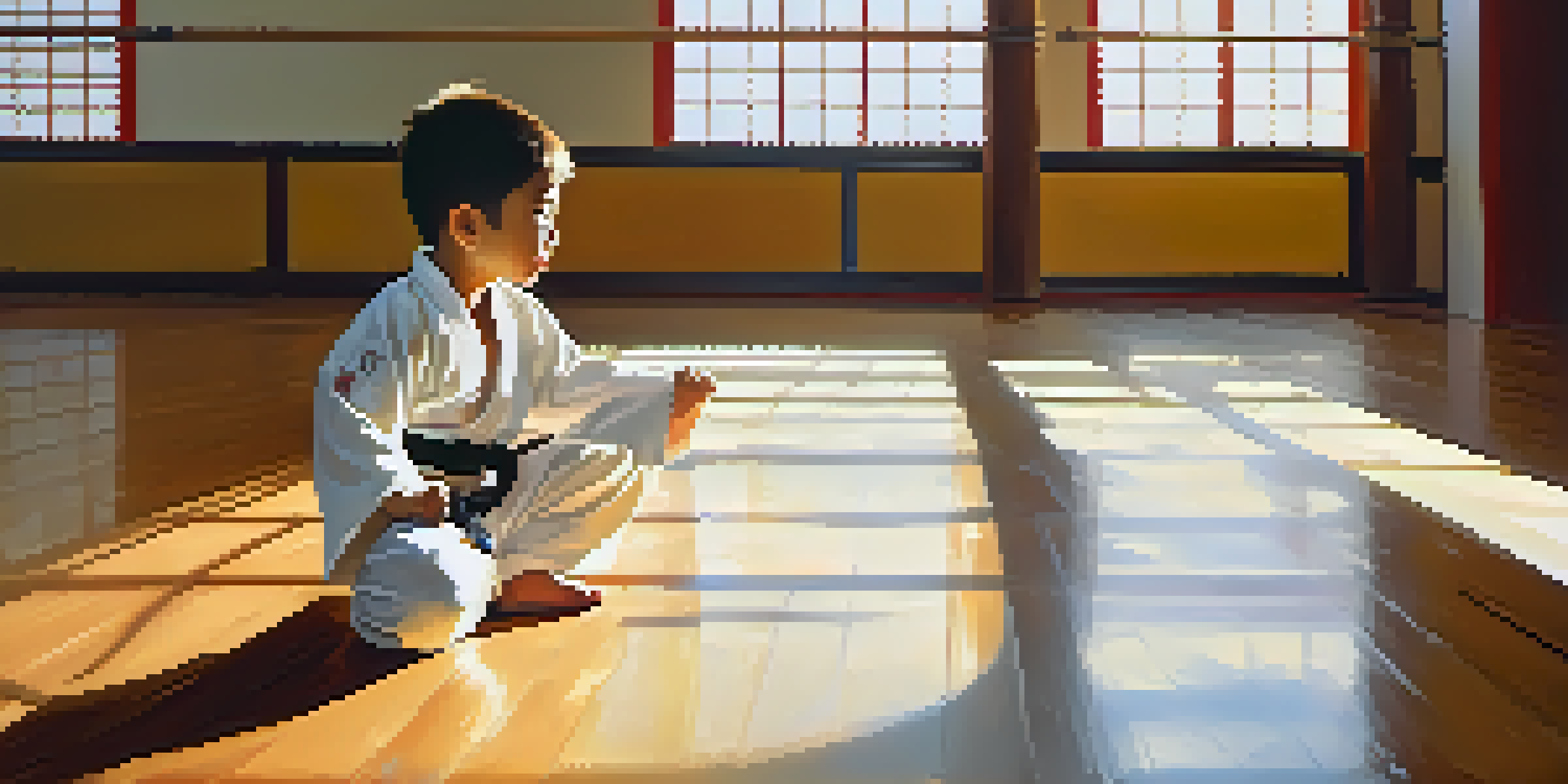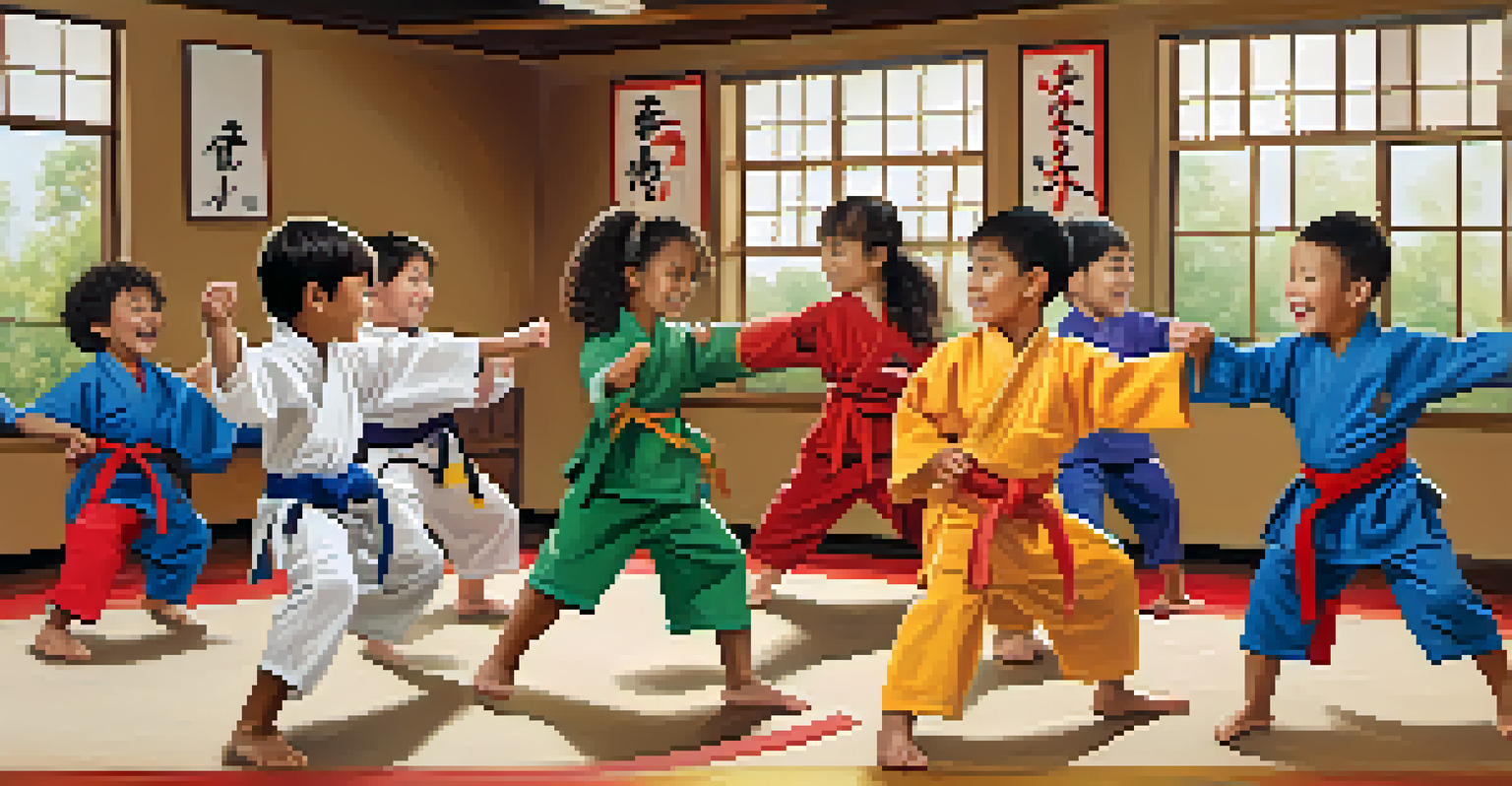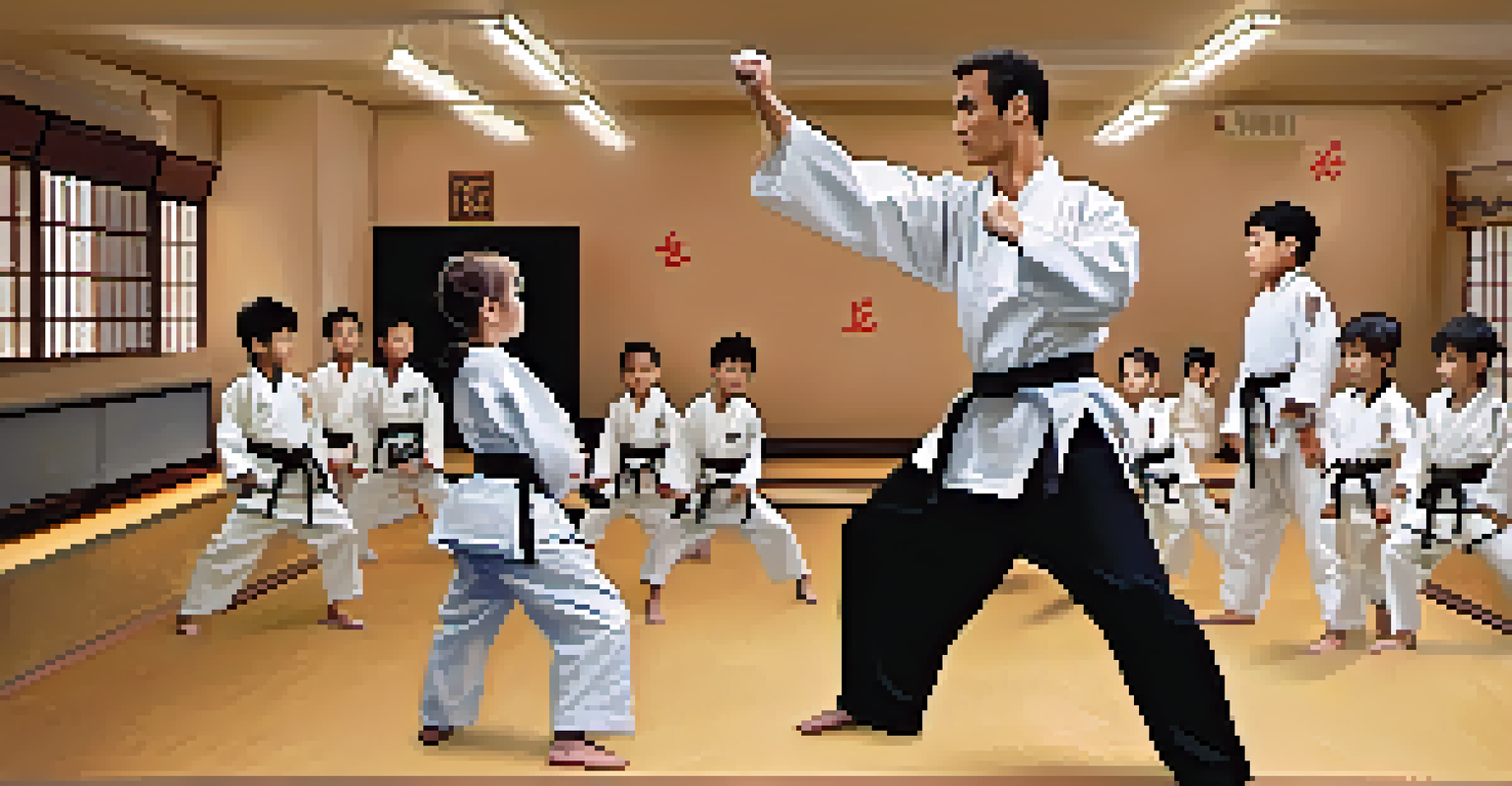How Martial Arts Enhance Physical Literacy in Young Children

Understanding Physical Literacy in Young Children
Physical literacy refers to the ability to move with competence and confidence in a variety of physical activities. For young children, developing these skills is crucial as it lays the foundation for a healthy lifestyle. It encompasses a range of skills including coordination, balance, agility, and strength, which can be cultivated through engaging activities.
Movement is a medicine for creating change in a person's physical, emotional, and mental states.
By encouraging movement from a young age, children learn to interact with their environment, which enhances their overall physical development. This is where martial arts can play a significant role, offering structured programs that focus on these fundamental motor skills. As children progress, they not only build physical literacy but also gain social skills and self-discipline.
Moreover, physical literacy is not just about being active; it’s about fostering a love for movement that lasts a lifetime. When children feel confident in their physical abilities, they’re more likely to engage in various sports and activities as they grow, promoting a healthier lifestyle.
How Martial Arts Develop Motor Skills
Martial arts training is a fantastic way to develop essential motor skills in young children. Through various techniques like kicking, punching, and blocking, children enhance their coordination and balance, which are vital components of physical literacy. These activities require precise movements and timing, helping kids refine their gross motor skills as they practice.

Additionally, martial arts often involve repetitive drills that reinforce these motor skills. This repetition not only builds muscle memory but also instills a sense of rhythm and timing. As children progress through different belts and levels, they are constantly challenged to improve their technique and performance.
Building Physical Literacy Early
Developing physical literacy in young children through activities like martial arts lays the foundation for a healthy lifestyle.
Furthermore, martial arts foster an environment where children can learn at their own pace. This personalized approach helps build confidence, as they can see the tangible results of their efforts over time.
Boosting Confidence Through Achievement
One of the most rewarding aspects of martial arts is the boost in confidence that comes from achievement. As children learn new techniques and earn belts, they experience a sense of accomplishment that enhances their self-esteem. This newfound confidence spills over into other areas of their lives, whether it’s in school, sports, or social situations.
The more that you read, the more things you will know. The more that you learn, the more places you'll go.
Martial arts classes often include goal-setting elements that encourage children to strive for personal milestones. This teaches them the value of hard work and perseverance, as they learn that success comes from consistent effort and dedication. Celebrating their achievements, no matter how small, helps children build a positive self-image.
Moreover, this confidence can be crucial in helping children navigate challenges outside the dojo. When faced with difficulties, they’re more likely to approach them with a can-do attitude, knowing they have the skills to succeed.
Enhancing Social Skills and Teamwork
Participating in martial arts also provides young children with the opportunity to develop essential social skills. Classes are often structured in a way that promotes teamwork and cooperation, encouraging children to support each other in their training. This social interaction is vital for developing communication skills and building friendships.
As children spar or practice techniques with partners, they learn the importance of respect, patience, and empathy. They understand that everyone progresses at their own pace, which fosters a supportive community within the dojo. This environment can help introverted children come out of their shells and engage more with their peers.
Boosting Confidence and Resilience
Martial arts training enhances children's confidence and emotional resilience, equipping them to face challenges in various aspects of life.
In addition, martial arts often include elements of mentorship, where older students guide younger ones. This not only reinforces the skills being learned but also builds leadership qualities in children, preparing them for future collaborative environments.
Promoting Discipline and Focus
Discipline is a core tenet of martial arts training, and it plays a crucial role in enhancing physical literacy. Instructors emphasize the importance of following rules, respecting others, and maintaining focus during practice. This structured environment teaches children to set goals and work towards them with determination.
As children learn to concentrate on their movements and techniques, they develop better focus both in martial arts and other areas of life, such as academics. The mental training involved in martial arts requires children to be present and engaged, which translates into improved attention spans.
Moreover, this discipline often leads to healthier lifestyle choices outside of martial arts. Children who learn the value of hard work and commitment are more likely to apply these principles to their daily routines, encouraging an active and balanced lifestyle.
Fostering Emotional Resilience
Martial arts training also plays a vital role in developing emotional resilience in young children. Through facing challenges in their training, such as learning complex techniques or sparring with partners, children learn to cope with frustration and setbacks. This builds a strong foundation for emotional intelligence.
As they navigate these challenges, children learn that it’s okay to make mistakes and that failure is often a stepping stone to success. This lesson is invaluable as it helps them manage stress and anxiety, not only in martial arts but in all aspects of life.
Fostering Social Skills and Discipline
Participation in martial arts encourages teamwork, social interaction, and instills discipline, which benefits children's overall development.
Additionally, the supportive environment of martial arts fosters a sense of belonging, allowing children to express their emotions freely. This emotional support is crucial for their overall well-being and helps them develop healthy coping strategies as they grow.
The Long-Term Benefits of Martial Arts Training
The benefits of martial arts extend far beyond the dojo, impacting children's lives in numerous ways. As they develop physical literacy, confidence, and emotional resilience, these skills become ingrained habits that serve them well into adulthood. The discipline and focus learned through martial arts training often translate into success in academic and professional pursuits later in life.
Moreover, children who engage in martial arts are more likely to maintain an active lifestyle as they grow older. The love for movement and physical activity cultivated during their formative years helps them make healthier choices throughout their lives, reducing the risk of obesity and related health issues.

In essence, martial arts training equips children with a toolkit of skills that enhances their physical, emotional, and social capabilities. By investing in martial arts, parents are not only fostering physical literacy but also paving the way for lifelong health and well-being.